Site Navigation
Lest We Forget: Remembrance Day 2023
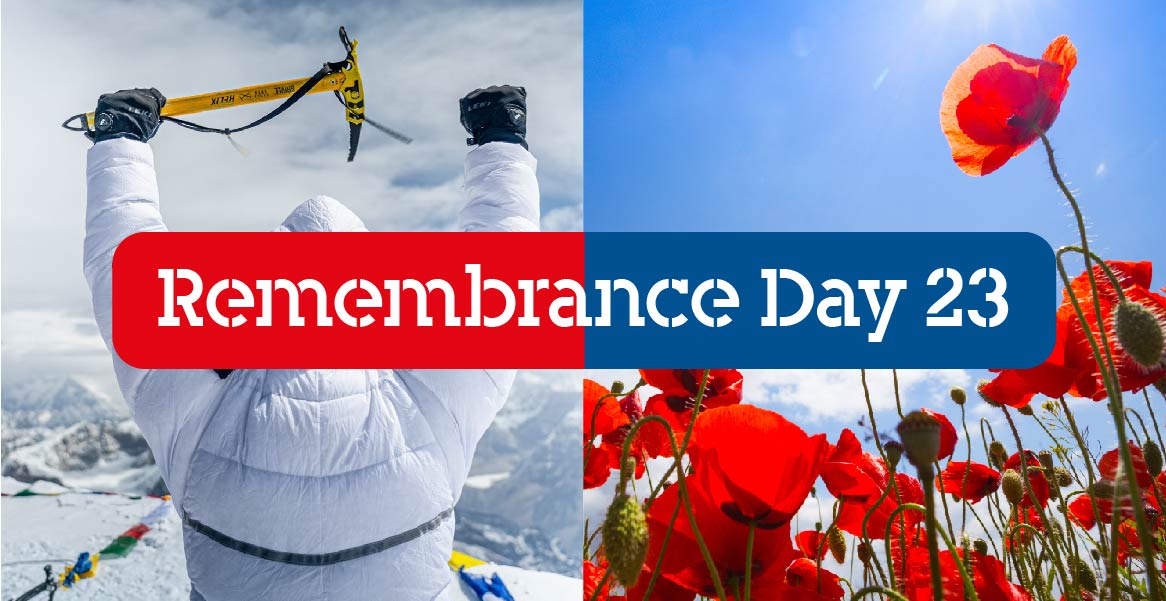
We will remember them
They shall grow not old, as we that are left grow old:
Age shall not weary them, nor the years condemn.
At the going down of the sun and in the morning,
We will remember them.
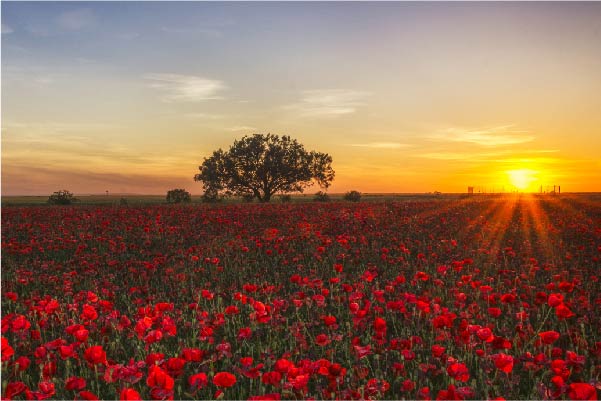
Remembrance Sunday 2023
Sunday 12th November 2023 marks Remembrance Sunday. This poignant day, observed annually on the second Sunday in November, transcends generations, uniting people in a shared commitment to remember and honour those who have made the ultimate sacrifice in times of conflict.
Remembrance Sunday is not merely a date on the calendar; it's a day to pay homage to the heroes who gave their lives to protect the freedoms we take for granted. It's a day to reflect on the profound impact of war and conflict on our world, our societies, and the families who bear the weight of loss.
Losing something
The loss of war can be felt in various ways. Some will lose lives, whilst others will lose a part of themselves; sometimes physically and sometimes mentally. Which can make adjusting to life after a war a huge challenge to overcome.
Hari Budha Magar lost both his legs above the knee in Afghanistan in 2010. Changing his life forever. But he didn’t let that stop him from achieving the impossible.
To commemorate this day, make a smile lottery are looking back on Hari’s inspirational story. Supported by our charity partner Blesma, The Limbless Veterans Charity, he became the first double above knee amputee to summit Mount Everest. Showing the Limbless Veterans across the world that nothing is impossible, and you can do anything you set your mind to, no matter your circumstances.
“I didn’t take the risk lightly but I knew it was my one shot. I wasn’t going to come back, so it was now or never.”
It was a journey of darkness to the very top of the world. With an exhausted swing of an ice axe and one final, weary heave, double amputee Hari Budha Magar has made it to the summit of Mount Everest after a gruelling assent. His five-strong team’s jubilant cheers were carried away on the roaring winds that – at an altitude of 8,848 meters – are fierce enough to whip ice particles into skin puncturing needles and choke the ability to speak.
But even hampered by low visibility and a dwindling oxygen supply, the 44-year-old Blesma Member and former Gurka corporal was able to enjoy the moment. “There were tears,” he says, “I was so happy to make it to the summit, but I also knew this moment was about more than me and my team. No-one could write off an amputee or disabled person again!”
The lethal lure of Everest – four climbers from other parties lost their lives during Hari’s successful ascent – represented more than a chance to test his limits; it was an opportunity to conquer the demons that swirl around anyone whose life path has changes in an instant and irreversibly.
A Life Changing Moment
For Hari, that moment came when he was blown up by an IED in Afghanistan while on patrol with the Royal Gurkha Rifles in 2010, resulting in double above knee amputations. He has escaped poverty when, at the age of 18, Hari became one of 230 candidates out of 12,000 to be selected for the Gurkha Regiment, where he served for 15 years. But after his injury he slumped into depression, drank too much and even considered taking his own life before finding resolution and a way out through activities – organised by Blesma and other military charities – that in turn led to a mission to change perspectives through a string of climbing endeavours.
“There were certainly dark days, I found my situation very difficult to cope with. But I had the chance to rehabilitate and start again,” says Hari from his home in Canterbury, where he lives with his wife Urmila, sons Brian and Ubran, and daughter Samjhana. “I eventually decided to make the most of my disability and to help others believe in themselves as well as make people and societies think more about disabled people.”
Moving Mountains
Hari has already achieved a number of notable successes before he set his sights on Mount Everest. He became the first double above knee amputee to climb Mount Toubkal in Morocco and the 6,058m peak of Chulu Far East in Nepal, climbing both using prosthetic legs. And before he got anywhere near Everest, which he finally tackled this May, he had to spearhead a mammoth fundraising effort, overturn a Nepalese government ban on disabled people climbing the mountain and deal with numerous false starts because of the Covid pandemic.
And once on the mountain, perhaps unsurprisingly, Hari faced huge logistical and physical barriers on his route to the top of the world. Every piece of clothing and equipment would have to be individually designed and manufactured, while his restricted gait made his ascent three times slower than that of non-disabled climbers.
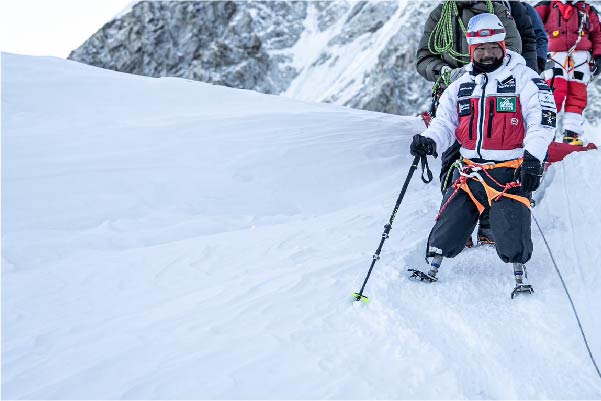
To add to the pressure, when at Base Camp, a piece of bracket on his specially designed crampons sheared off, threatening his ability to connect to his bespoke prosthetic legs. Five years of planning and training were in serious jeopardy before the climbing had even begun.
“The crampons were specifically made for me in Orlando and there wasn’t enough time to get a replacement,” Hari says. “We only had a short window for the climb and there was no time to send the crampon to Kathmandu for repair. I had to go with it and keep my fingers crossed.”
An Exhausting Ascent
Hari and his initial team of 13, which included his brother Nanda, laboured through treacherous ice fields, across shifting crevasses and up hugely technical climbs to process through camps 1 to 4 and enter the ‘Death Zone’. Here, the altitude turns the slightest exertion – even merely breathing – into a superhuman feat.
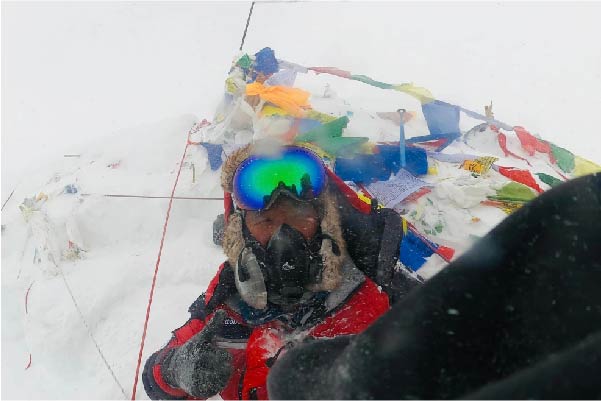
Vitally, he wore a three heat-preserving base layers and a down suit that had been fitted with specially tailored drawstrings to pull tight around his prosthetics to ensure the elements couldn’t find a way through.
“It was hard going, but we didn’t encounter any major problems,” says Hari. “The biggest issue was when we reached Camp 4. We should have established a fifth camp to allow us to get more oxygen further up the mountain and have the chance to rest before the final push for the summit, but because of the weather that wasn’t possible. We stopped for two-and-a-half hours and considered our options. We had been climbing for 14 hours from Camp 4 and really should have rested a night before going for the summit, of to a Camp 5. But I’d spent almost six years preparing for this and had so many supporters and charities behind me – so many people had worked so hard to give me a chance – I couldn’t let them down.
A Calculated Risk
“It was a big risk – 17 people have died on Everest this year and four climbers have died on the mountain on the day of our summit. I didn’t take the risk lightly, but I knew it was my one shot. I wasn’t going to come back to the mountain, so it was very much now or never. I was a risk, but it was a calculated risk.”
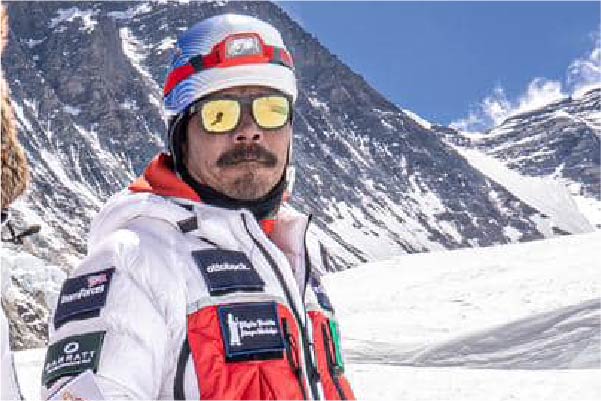
The Principle of Momentum
Hari admits that on the final push to the summit in the “Death Zone” there was a point when he told his team they should all go back down because the conditions were too bad and he didn’t feel that the necessary logistics were in place.
“It was my brother and a Sherpa who told me we could make it,” says Hari. “I thought how far I had come and how many steps I had already taken. I also thought about my military training and the principle of momentum, which is part of our doctrine. It’s not about how fast you go, it’s all about keeping going, if you pause, you lose the battle. That was in my mind. I took a risk, but I has momentum on my side. We started from step one – we might be slow, and it might take us a long time, but every step up the mountain added momentum.
“I had to pull myself up with the ice axe and a jumar (a device for climbing up a fixed rope) then push myself with a walking pole or ice axe to go forward, which was tough and slow, but when you’ve marched and marched through the night you know how to keep going.”
11 out of the 13-strong party made the summit attempt, but during that push six had to turn back for various reasons.
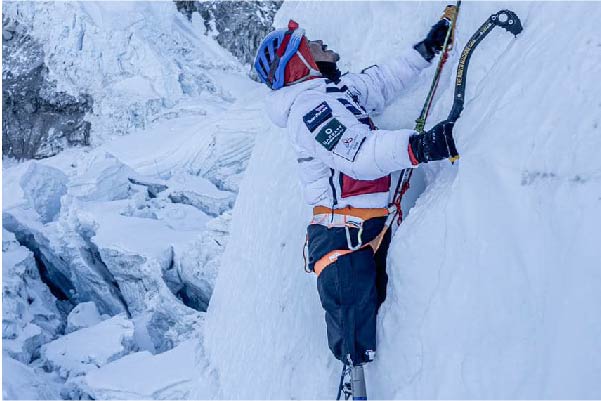
On Top of the World
“When we reached the summit, I cried like a baby as what we had achieved began to sink in. There was a moment of triumph and we took pictures, then it was back to work to get down safely. We radioed down that we had summited, but the wind was so strong that they couldn’t hear what we were saying, and they thought we had called it off before the summit. It wasn’t until we got back down to Camp 4 that we were able to confirm we had made it!”
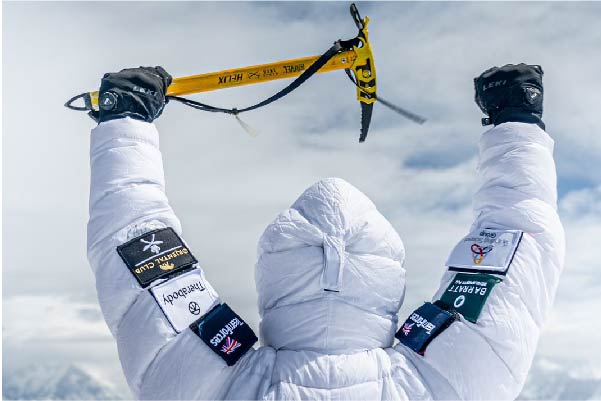
News of the team’s success travelled around the world, and Hari received a congratulations from Prince William, Prime Minister Rish Sunak, Nepalese government diplomats and from celeb supporters such as actor Tom Hardy, and the expedition’s patron Joanna Lumley.
There were cheers and tears back in Canterbury where Hari’s family waited anxiously while he was out of radio contact.
“We were nervous while he was on the mountain, but it was cool when we got the news and we are all proud of him,” says his son Brian. “We were worried about him getting down because that is tricky too, so we were relieved when he got to Base Camp. It was his childhood dream, and he got it done!”
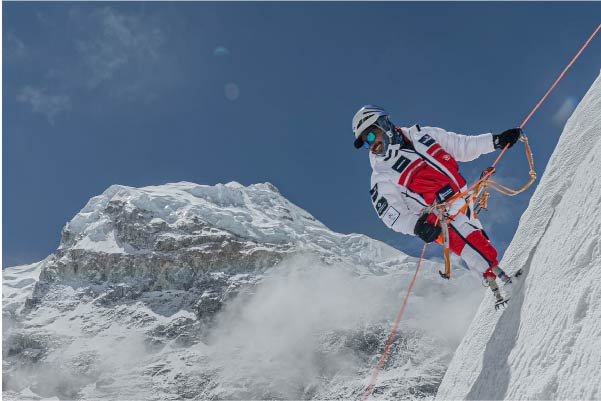
Hari, who is raising funds for Blesma, The Gurka Welfare Trust, On Couse Foundation, Team Forces and Pilgrim Bandits, adds: “The support I have had is fantastic and I wanted to give back to the organisations like Blesma that helped me in the initial days after the IED. The association gave me an opportunity to ski and try other sports, which helped give me my confidence back.”
Now Hari aims to raise awareness of disability and inspire others to challenge and believe in themselves to climb their own mountains, whatever they may be.
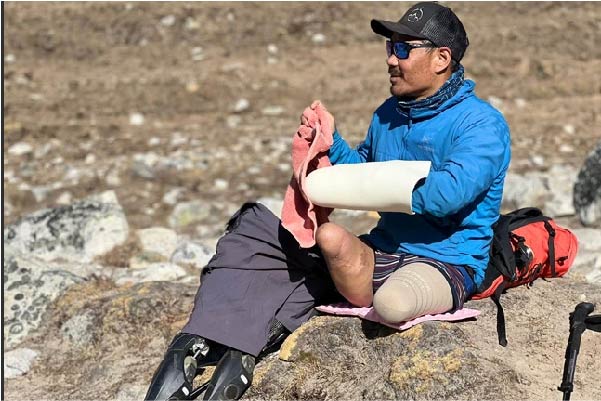
Spreading Hope
“The wonderful thing is that I get messages from around the world from people telling me they took my story into their heart at a time when they were suffering. Some people have even said they were considering taking their own life but now they have a purpose and hope. I feel fortunate that I can inspire people.”
Hari has other mountaineering challenges lined up, and a TV documentary and a book are in production, but he remains humble about his remarkable triumph on Everest.
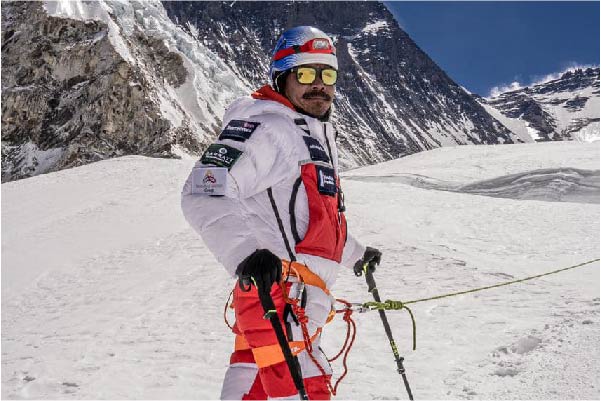
“If what I’ve done gives people the courage to do whatever challenge they want, then it’s good.”
To learn more about his incredible story, visit his website here.
For more information on the support Blesma provided, visit their website here.















